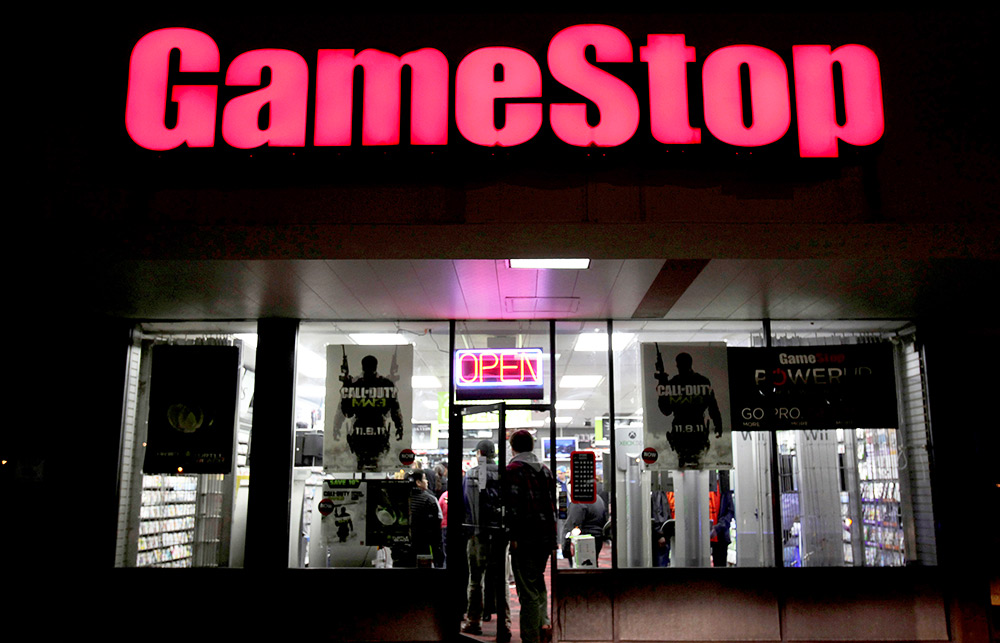
现行股票交易流程早已过时。虽然其他行业随着技术和流程的不断更新已进入互联网时代,但华尔街却还在利用20世纪70年代的基础技术开展业务。现行交易仍然离不开第三方券商,券商(而非实际股票所有人)可以控制股票买卖。
这种技术在过去确实有用。但在面临像游戏驿站(GME)近期遇到的混乱局面时,它就行不通了——如果不做出改变,社交媒体一旦介入,这种情况很可能还会出现。对于前几天发生的GME事件,我不想再提,但事实很明了——游戏驿站不想停止交易,投资者也不想停止交易,停止交易的是罗宾汉。
“史无前例”这个词,我们已经听腻了,但用它形容现在的事件却最合适不过。允许券商控制股票交易的方式和时间,真是太愚蠢了。只允许用户卖出股票,第三方券商罗宾汉由此控制了股价的走向。
事实上,这是史上唯一一次券商擅自决定只允许投资者卖出股票但不允许买入股票,当然这也是唯一一次券商擅自决定强行卖出客户自管账户的现货头寸。
有用户已经起诉罗宾汉,我预计接下来,禁止客户交易GME的其他券商也会面临更多诉讼。虽然上周已经出现的结果不会改变,但最终,这一切应该能推动技术革新,让投资者能够直接控制自己的资产,而不是让券商来控制。
区块链技术是数字时代的解决方案,能真正让这一行业实现转型和现代化。目前,拥有公开交易股票的唯一方法是在交易所购买股票,并通过券商取得这些股票。如果证券实现代币化,投资者就可以自己保留代币,也可以在任何集中式或分散式交易所买卖代币。这样,他们在使用自有资金和资产时,就无需再获得罗宾汉和亚美利证券(TD Ameritrades)等券商的许可。
(我的公司Polymath为各大公司提供在区块链上创建、发行和管理证券的技术,因此,当越来越多的公司实现证券代币化时,我们就可以获利。)
在证券型代币世界,如果像罗宾汉这样的应用程序不愿意合作,像对GME一样限制交易,投资者仍然可以绕过券商进行交易,或者与满足其需求的其他券商交易,即时将其业务和资产转移到其他地方。证券型代币既能保护投资者,又能解决这一存在已久的问题,遵守合规要求的任何人随时都可以交易。股票市场不必局限于某些国家的少数交易所;它可以在分散技术基础上成为一个全球化市场。
它是唯一一种真正能解决困扰股票交易行业众多问题的方法,这一想法有些激进,但认同这一想法的人并非只有我一个。天使投资人兼前比特币公司(Coinbase)CTO巴拉吉•斯里尼瓦桑也赞同这种观点。上周,他在推特(Twitter)上发文呼吁美国证券交易监督委员会(美国证监会)认可证券型代币,他声称“问题不在于某些加密货币可能是证券,问题在于所有证券都还不是加密货币。”他还说,证券型代币一旦合法化,投资者使用代币时就不再有顾虑,权力的天平就会再次偏向投资者,而不是集权式把关人。
美国证监会要将近期发生的事件作为催化剂,并鼓励投资者走向代币化。如果美国证监会的任务是保护投资者,那么可以说,它在上周的任务中失败了。但这也可能是其发出的必要警示,促使各公司接受新技术,直接向投资者出售股票,而不是像传统证券那样沾染官僚作风并且拖拖拉拉。虽然让此愿景成为现实不一定需要美国证监会的批准,但它的批准的确可以加快这一进程。
最重要的是,我们离这个梦想并不遥远。因为这项技术已经存在。新加坡和德国等国已经先于美国,为证券代币化开了绿灯。我始终坚信,到2040年,所有证券都将转向区块链——近期发生的事件让这一不可避免的转变更快地到来。(财富中文网)
格雷姆•摩尔是Polymath代币化负责人。
翻译:郝秀
审校:汪皓
现行股票交易流程早已过时。虽然其他行业随着技术和流程的不断更新已进入互联网时代,但华尔街却还在利用20世纪70年代的基础技术开展业务。现行交易仍然离不开第三方券商,券商(而非实际股票所有人)可以控制股票买卖。
这种技术在过去确实有用。但在面临像游戏驿站(GME)近期遇到的混乱局面时,它就行不通了——如果不做出改变,社交媒体一旦介入,这种情况很可能还会出现。对于前几天发生的GME事件,我不想再提,但事实很明了——游戏驿站不想停止交易,投资者也不想停止交易,停止交易的是罗宾汉。
“史无前例”这个词,我们已经听腻了,但用它形容现在的事件却最合适不过。允许券商控制股票交易的方式和时间,真是太愚蠢了。只允许用户卖出股票,第三方券商罗宾汉由此控制了股价的走向。
事实上,这是史上唯一一次券商擅自决定只允许投资者卖出股票但不允许买入股票,当然这也是唯一一次券商擅自决定强行卖出客户自管账户的现货头寸。
有用户已经起诉罗宾汉,我预计接下来,禁止客户交易GME的其他券商也会面临更多诉讼。虽然上周已经出现的结果不会改变,但最终,这一切应该能推动技术革新,让投资者能够直接控制自己的资产,而不是让券商来控制。
区块链技术是数字时代的解决方案,能真正让这一行业实现转型和现代化。目前,拥有公开交易股票的唯一方法是在交易所购买股票,并通过券商取得这些股票。如果证券实现代币化,投资者就可以自己保留代币,也可以在任何集中式或分散式交易所买卖代币。这样,他们在使用自有资金和资产时,就无需再获得罗宾汉和亚美利证券(TD Ameritrades)等券商的许可。
(我的公司Polymath为各大公司提供在区块链上创建、发行和管理证券的技术,因此,当越来越多的公司实现证券代币化时,我们就可以获利。)
在证券型代币世界,如果像罗宾汉这样的应用程序不愿意合作,像对GME一样限制交易,投资者仍然可以绕过券商进行交易,或者与满足其需求的其他券商交易,即时将其业务和资产转移到其他地方。证券型代币既能保护投资者,又能解决这一存在已久的问题,遵守合规要求的任何人随时都可以交易。股票市场不必局限于某些国家的少数交易所;它可以在分散技术基础上成为一个全球化市场。
它是唯一一种真正能解决困扰股票交易行业众多问题的方法,这一想法有些激进,但认同这一想法的人并非只有我一个。天使投资人兼前比特币公司(Coinbase)CTO巴拉吉•斯里尼瓦桑也赞同这种观点。上周,他在推特(Twitter)上发文呼吁美国证券交易监督委员会(美国证监会)认可证券型代币,他声称“问题不在于某些加密货币可能是证券,问题在于所有证券都还不是加密货币。”他还说,证券型代币一旦合法化,投资者使用代币时就不再有顾虑,权力的天平就会再次偏向投资者,而不是集权式把关人。
美国证监会要将近期发生的事件作为催化剂,并鼓励投资者走向代币化。如果美国证监会的任务是保护投资者,那么可以说,它在上周的任务中失败了。但这也可能是其发出的必要警示,促使各公司接受新技术,直接向投资者出售股票,而不是像传统证券那样沾染官僚作风并且拖拖拉拉。虽然让此愿景成为现实不一定需要美国证监会的批准,但它的批准的确可以加快这一进程。
最重要的是,我们离这个梦想并不遥远。因为这项技术已经存在。新加坡和德国等国已经先于美国,为证券代币化开了绿灯。我始终坚信,到2040年,所有证券都将转向区块链——近期发生的事件让这一不可避免的转变更快地到来。(财富中文网)
格雷姆•摩尔是Polymath代币化负责人。
翻译:郝秀
审校:汪皓
The current process for trading stocks is archaic. While other industries have grown into the Internet age with updated technology and processes, Wall Street is still operating on underlying technology that was built in the ’70s. Trading as it currently stands requires a third-party broker to facilitate transactions, leaving brokerages in control of buying and selling—instead of the people who actually own the stocks.
This has worked in the past, yes. But when you have a situation like the recent GameStop (GME) snafu, it doesn’t—and when social media gets involved, this will likely keep happening unless a change is made. I won’t rehash the details of the events involving GME in the past few days, but the takeaway is simple. GameStop didn’t want trading to stop. Its investors didn’t want to stop trading. It was Robinhood that stopped the trading.
We’re all tired of hearing the word “unprecedented,” but that’s the best way to describe what’s happening here. Allowing a brokerage to have control over how and when a stock is traded is, simply put, insane. And by limiting transactions to sell-only, that same third-party brokerage dictated the direction of the stock price.
The fact is, this is one of the only times in history that a brokerage has taken it upon itself to only allow investors to sell and not buy, and certainly the only time where a brokerage took it upon itself to forcefully sell client spot positions in self-directed accounts.
Lawsuits have already started to be levied against Robinhood, and I expect more will follow for other brokerages that didn’t allow their clients to trade GME. While these won’t change the outcome of the past week, the situation should be the impetus to finally push for a technology overhaul that will put investors in direct control of their assets, rather than brokerages.
Blockchain is a digital-age solution with the power to truly transform and modernize the industry. The only way to currently own publicly traded stocks is to buy them on a location-based exchange and access them via a brokerage firm. If securities were tokenized, investors could store them in their own possession and would always be able to trade them on any centralized or decentralized exchange. That way, they wouldn’t have to rely on permission from the Robinhoods and TD Ameritrades of the world to access their own money and assets.
(My company, Polymath, provides technology for companies to create, issue, and manage securities on the blockchain, and therefore could financially benefit if more organizations tokenize their securities.)
In a security token world, if an app like Robinhood doesn’t want to play ball and restricts trading like it did with GME, investors would still have the option to trade outside a brokerage or with any brokerage that meets their needs by instantaneously taking their business, and assets, elsewhere. Security tokens can both protect investors and solve the antiquation problem, opening up trading to anyone that meets compliance requirements—at any time. The stock market doesn’t need to be limited to a small number of exchanges located in specific countries; it can be a globalized system built on decentralized technology.
It’s a radical idea, but I’m not the only one that sees this as the only real solution to the problems plaguing the trading industry. Take angel investor and former Coinbase CTO Balaji Srinivasan. On Twitter last week, he called on the Securities and Exchange Commission (SEC) to embrace security tokens, claiming that “the problem isn’t that some cryptos may be securities, the problem is that all securities aren’t yet cryptos.” He’s right to say this—legitimizing security tokens would make investors less wary of using them, which will shift the balance of power back to the investors themselves, rather than monolithic, centralized gatekeepers.
The SEC needs to see recent events as a catalyst and start encouraging investors to go down the path of tokenization. If the agency’s mandate is indeed to protect investors, it failed last week. But this can be its needed wake-up call to start pushing companies to embrace technology that will let them sell directly to investors without the bureaucracy and lag time that comes with legacy securities. While an SEC endorsement isn’t a necessity to make this future a reality, it would speed along the process.
The best part is that this isn’t a far-off dream for the future. The technology already exists. Countries like Singapore and Germany are already ahead of the U.S. by green-lighting the tokenization of securities. I’ve long believed that all securities will move to the blockchain by 2040—recent events have just accelerated the inevitable shift.
Graeme Moore is head of tokenization at Polymath.






